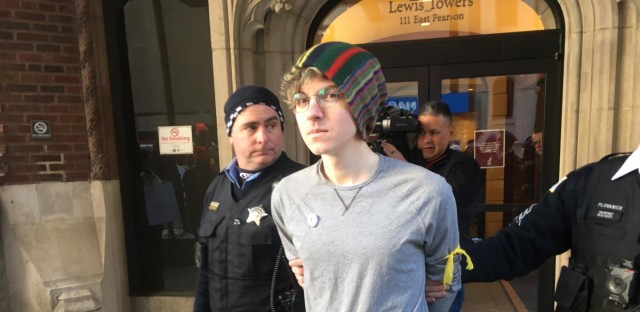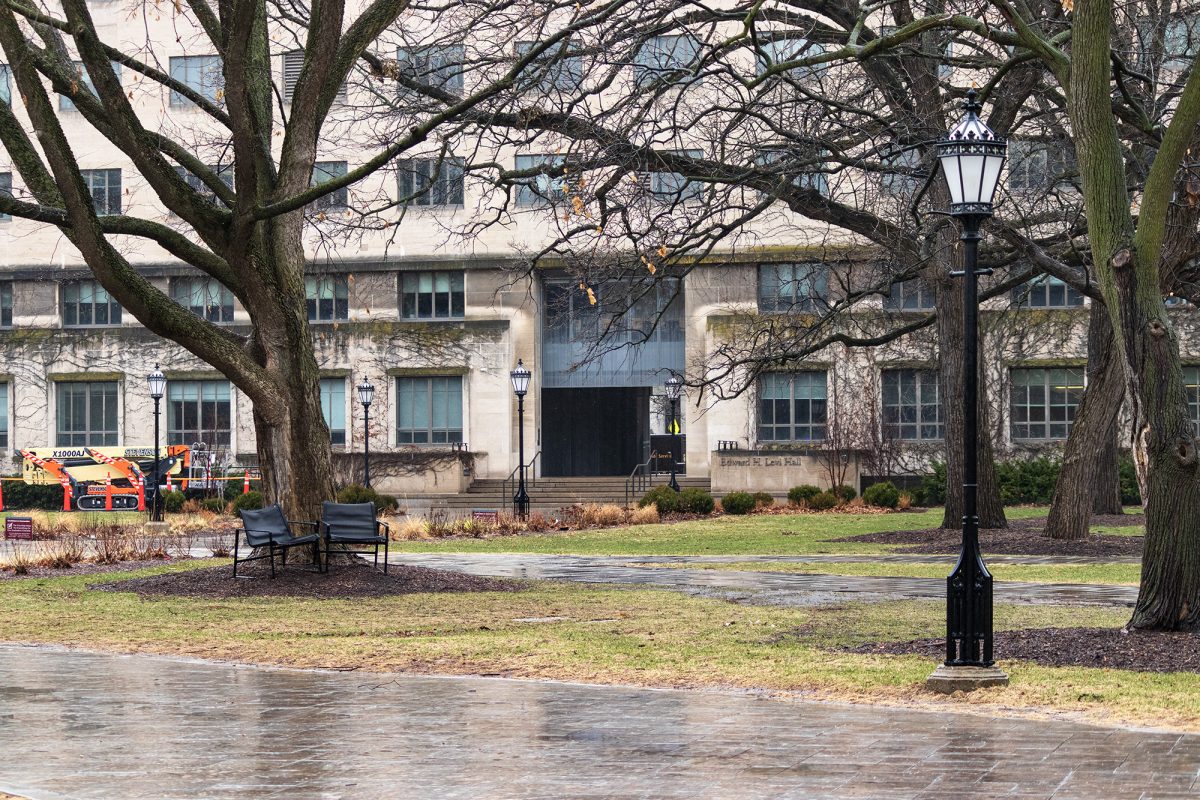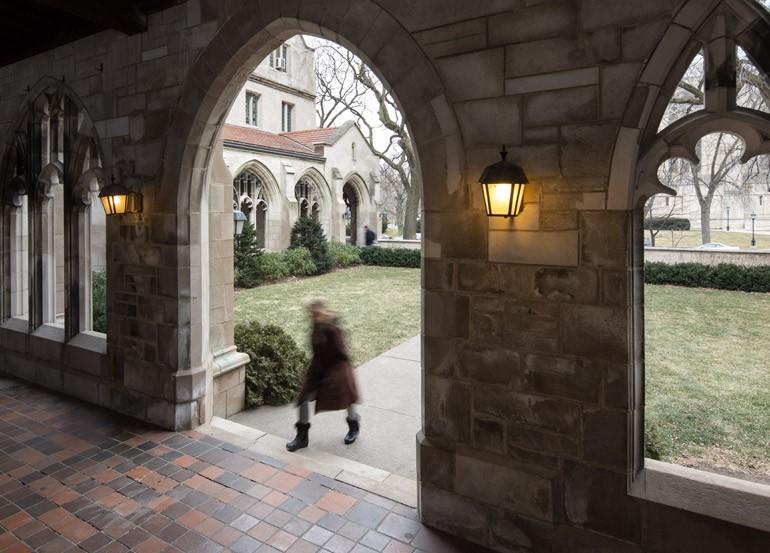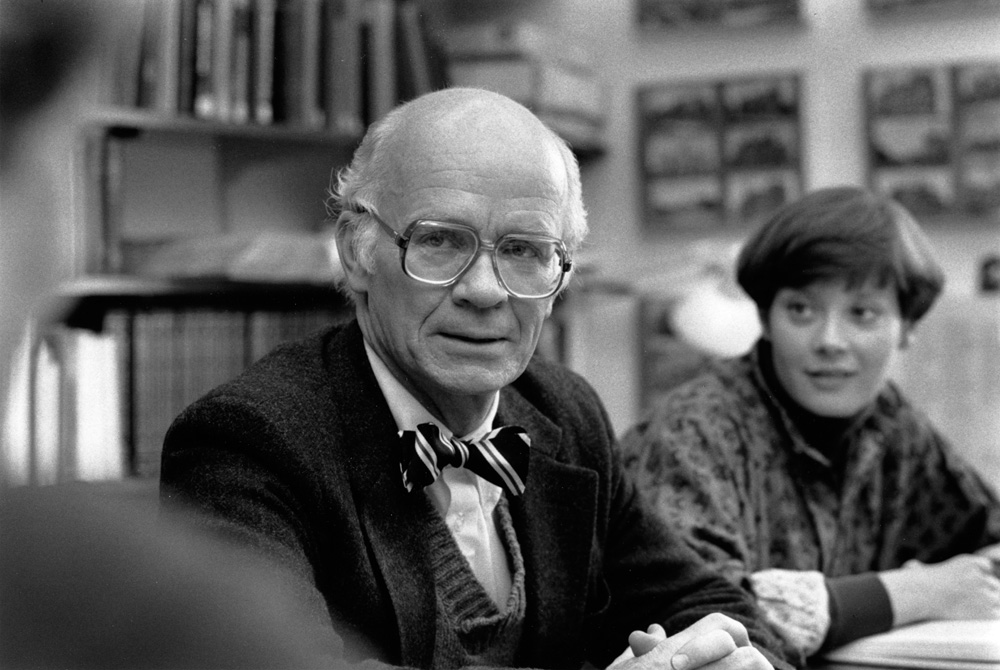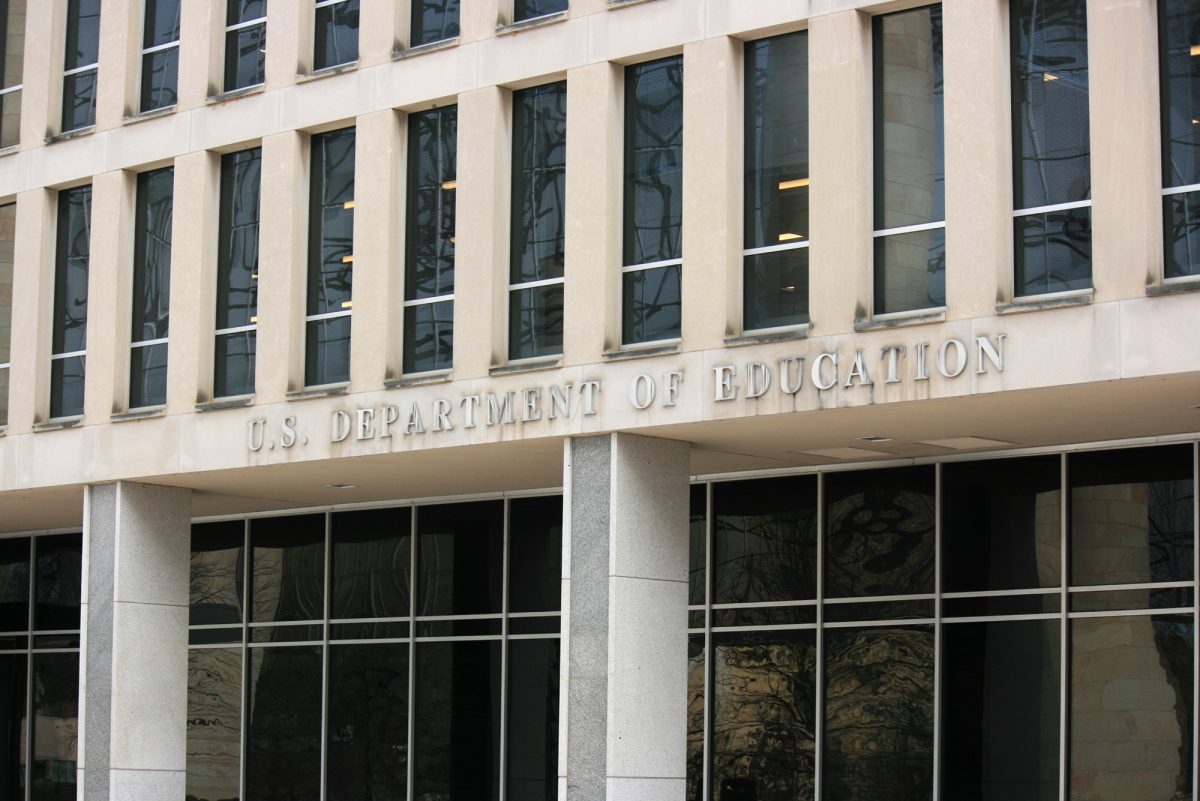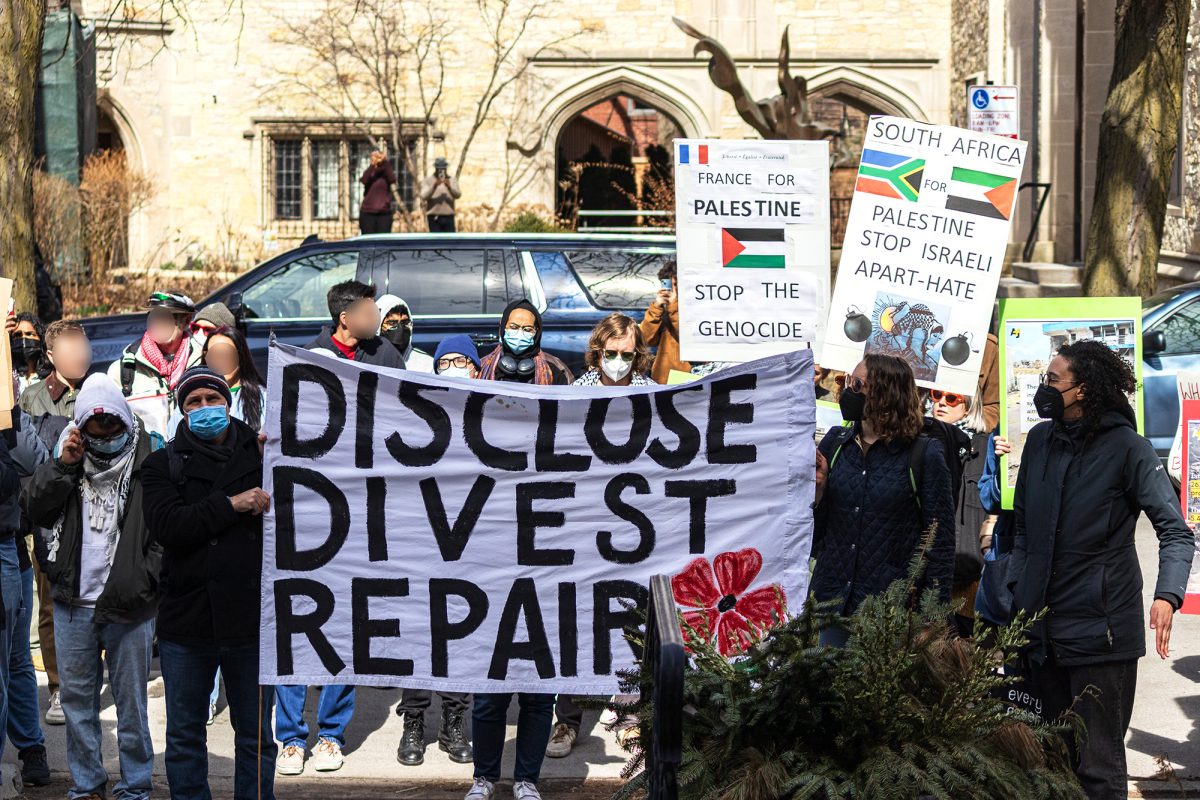Across Chicago, graduate student unions at private universities are intensifying their efforts to negotiate with administrators—even as President Trump’s appointees to the National Labor Relations Board (NLRB) make them wary of formally petitioning for recognition.
The Obama-era Board reversed precedent in 2016 when it held that graduate research and teaching assistants at Columbia University were entitled to collective bargaining. Organizers fear that Trump’s Republican-majority Board would reverse itself again and overturn Columbia’s precedent, which currently states graduate students at private universities qualify as employees.
To examine unionization efforts underway beyond UChicago, The Maroon spoke with labor organizers at Loyola University, where seven students were last week arrested at a sit-in in front of administrators’ offices, and at Northwestern University, where pro-union graduate students held a work-in action yesterday.
Loyola
Three graduate and four undergraduate students at Loyola University were arrested and cited for disorderly conduct last week during a sit-in protest at the University’s downtown campus. Following last week’s protest, graduate students held a mass walk-out yesterday.
Loyola graduate students voted to unionize in February 2017, but, as with the University of Chicago, administrators have declined to negotiate with the group. And, similarly to UChicago Graduate Students United (GSU), organizers at Loyola have staged demonstrations, sit-ins, and public grading events to bring attention to their work.
Alec Stubbs, a political philosophy Ph.D. student at Loyola, was one of the demonstrators arrested last week. He told The Maroon that the graduate students’ efforts to gain recognition have escalated in recent months, as two years of efforts to get Loyola to bargain have proved unsuccessful.
“It’s becoming increasingly urgent because we’re going on year three of the University failing to recognize us,” Stubbs said. “We’ve attempted to go through all the ‘proper channels’—by meeting with administrators—and despite some of the small concessions the University has given us, we want to be able to sit down and negotiate a fair contract so that we have something legally binding that can’t be taken away on a whim.”
Yiran Zhang, another philosophy Ph.D. student who was arrested following the sit-in, said organizing efforts are ramping up because Loyola graduate students feel they’ve exhausted their options. She added that there are strategic advantages to protesting in the spring.
“A lot of things are coming to a head in spring semester. And, strategically, that’s important, because we do a lot of the work that makes the University run, and to shut down the University at a time when graduating seniors need those grades in order to graduate—that’s a really powerful message,” Zhang said.
Northwestern
Unlike Loyola and UChicago GSU, members of Northwestern University Graduate Workers (NUGW) have not held a union election—and don’t intend to hold one soon.
Organizers say they’re concerned that, if they hold a successful election and the case is escalated to the National Labor Relations Board, they risk overturning Columbia. Instead, NUGW has opted for an issue-based campaign strategy.
Key issues include funding, a rising health care–deductible, and Northwestern’s participation in a discretionary government program called E-Verify, which provides data about Northwestern students and employees to the U.S. Department of Homeland Security in order to verify citizenship status.
Earlier this month, NUGW held a demonstration and presented a list of demands, signed by over 300 students across departments, over the issue of sixth-year Ph.D. program funding.
In May of last year, the Graduate School at Northwestern stopped granting sixth-year Ph.D. students funding through assistantships, which had previously been a reliable source of income for some students.
Mauricio Maluff Masi, a first-year philosophy Ph.D. candidate and NUGW member, said that while sixth year feels far off for him now, he worries for friends who are currently in their fifth year and aren’t sure whether they will have enough funding to complete their dissertation.
“This is April, their sixth year starts in September, and, right now, they don’t know whether they will have funding to continue the program,” Masi told The Maroon. “They get mixed messages from their departments—‘oh, wait and see.’ ”
Petitioning the NLRB is not the only way graduate students at private institutions have gained a union. At Georgetown, Brown, and New York University, administrators have agreed to third-party arbitration separate from NLRB.
NUGW member Perry Kleinhenz, a mathematics Ph.D. student, told The Maroon that he’s optimistic about the issue-based approach. While he hopes Northwestern will accede to pressure and restore sixth-year funding opportunities, he doubts that administrators will voluntarily recognize NUGW anytime soon.
“It seems like the administration in general is pretty hostile towards our efforts to unionize,” he said. “They devote some level of time and energy to discrediting the idea of a union, so I’m not terribly optimistic that they would agree to third-party arbitration.”
Still, Kleinhenz added that he thinks Northwestern has taken a conciliatory approach compared to the University of Chicago. “Northwestern has been not nearly as overt in their hostility towards unionizing as, I think, the University of Chicago has,” he said, referencing an email in which Dean of the College John Boyer urged graduate students not to participate in a walkout last October.
Spokespeople at Northwestern University and the University of Chicago did not respond to The Maroon’s requests for comment at the time of publication.
UChicago GSU
At UChicago, GSU members frequently attend work actions in solidarity with graduate students across the city.
“Things may be heating up, as members grow increasingly frustrated with each additional day that the admin disrespects our democratic voice,” University of Chicago GSU told The Maroon in a statement. “We see our colleagues in Chicago and beyond fighting for similar things, escalating their tactics, and often winning. But… whether and how we escalate is up to our members. At the moment, we can say that these important conversations are ongoing."
Next up on organizers’ calendars: a labor march on May 1st, International Workers’ Day, planned by the University of Chicago Labor Council, which comprises multiple worker unions at the University.



